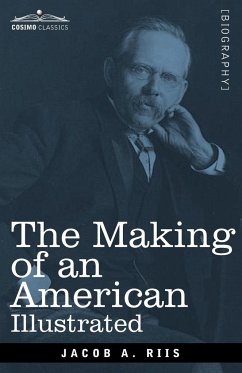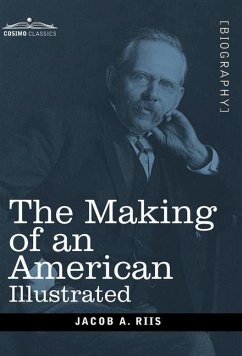"When nothing seems to help, I go and look at a stonecutter hammering away at his rock perhaps a hundred times without as much as a crack showing in it. Yet at the hundred and first blow it will split in two, and I know it was not that blow that did it-but all that had gone before." -Jacob Riis, The Making of an American Journalist Jacob Riis wrote his autobiography, The Making of an American, in 1901, a personal story about his and America's past: his early life in Denmark, his struggles as an immigrant in the United States, and how he took advantage of the opportunities offered in America. This is a fascinating read for anyone interested in immigrant stories, the history of the United States and New York, and social reform at the turn of the twentieth century.








